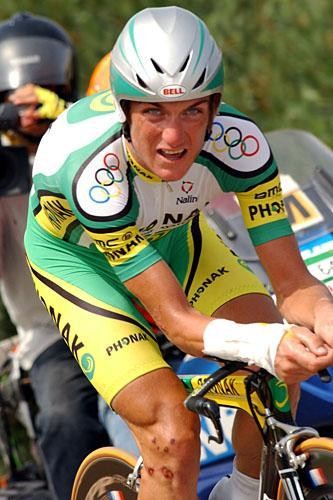Hamilton responds to WADA’s life ban request
Attorney - WADA intervention vindictive, personal and ruthless

Tyler Hamilton’s attorney has described the World Anti-Doping Agency’s efforts to ban the retired rider for like as vindictive, personal and ruthless. WADA has pursued its right under the World Anti-Doping Code’s Article 13 to seek maximum penalty for Hamilton, despite the rider already signing an agreement with the United States Anti-Doping Agency to accept an eight year ban without pursuing the matter legally.
“WADA’s insistence on a lifetime ban against Tyler is a vindictive, personal and ruthless attempt to destroy a man who suffers from a serious illness, has ended his career, and has already accepted the penalty imposed upon him," said Hamilton Attorney of Record Chris Manderson.
Manderson reiterated Hamilton’s taking of Mitamins was to address clinical depression. “There is no reasonable basis to have the maximum penalty imposed upon Tyler Hamilton for taking an herbal anti-depressant that happened to contain DHEA,” he said. “Tyler has been diagnosed with and is battling clinical depression, an illness which many people suffer from, and which took the life of his grandmother and has afflicted his mother and sister.”
Manderson was clearly unimpressed with WADA’s handling of the announcement. The attorney highlighted WADA’s announcement questions the actions of one of its own members in the settlement.
“Even worse, WADA has stated that the eight year sanction ‘warrants scrutiny from an independent tribunal’ because ‘it was the result of an agreement between USADA and the athlete’, as though Tyler and USADA had somehow colluded in wrongdoing by agreeing to a sanction within the acceptable range under the WADA code,” he added. “WADA did not even notify Tyler nor myself of its intent to pursue this action; we learned of it through the media.”
WADA appealed to the Court of Arbitration in Sport (CAS) to have the eight year ban overturned and the lifetime ban imposed.
Hamilton tested positive for Testosterone in an out-of-competition doping control taken before the Tour of California in February. He claimed the positive came as a result of homeopathic medicine he was taking for depression, before accepting an eight-year ban on June 11, 2009.
Get The Leadout Newsletter
The latest race content, interviews, features, reviews and expert buying guides, direct to your inbox!
Since Hamilton previously served a suspension for homologous blood doping in 2004, the second offense can lead to an eight-year to lifetime ban. WADA is seeking the maximum penalty.
"The procedure will be conducted in accordance with the Code of Sports-related Arbitration and as a general rule a final decision will be rendered within four months," CAS said.
Hamilton announced following the positive test that he would retire from the sport.